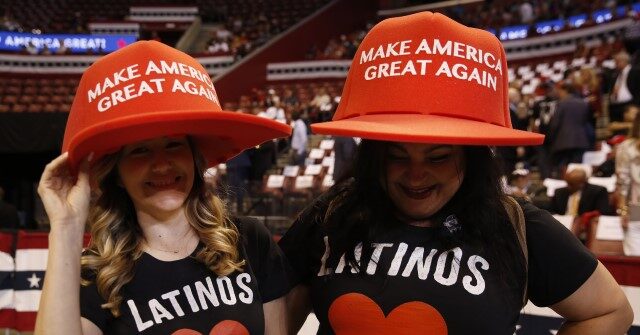During the recent election coverage by CBS, correspondent Cecilia Vega highlighted a significant trend among Hispanic neighborhoods in the Philadelphia area shifting towards support for 2024 Republican presidential candidate, former President Donald Trump. This trend was surprising given Trump’s previous rhetoric surrounding immigration. Vega noted that polling data revealed a disconnect between Trump’s language about immigrants and how it resonates with many Latino voters. Specifically, two-thirds of Latino respondents and half of foreign-born Latino respondents believed that Trump was not referring to them when he spoke about immigrants. This perception suggests a nuanced understanding among these voters, indicating that despite Trump’s controversial statements, his messaging is finding some traction within the Latino community, particularly when he discusses economic topics.
As Anthony Salvanto, CBS News Executive Director of Elections and Surveys, examined Trump’s growing numbers among Hispanic voters, Vega clarified that this phenomenon may seem counterintuitive given Trump’s past remarks and campaign rhetoric. The complexity of Latino voters’ perspectives is intricately tied to their sense of identity and belonging. Vega emphasized that many Latinos appear to connect with Trump’s broader economic message. They may appreciate that Trump addresses them similarly to how he addresses white voters, allowing them to feel included in his economic discourse. This aspect of Trump’s campaign could be crucial in influencing Latino voters who might otherwise align with the Democratic Party.
Vega’s analysis suggests an evolving relationship between Latino voters and the Republican Party, particularly in the context of the current political climate. Historically, Latino voters have shown strong support for Democratic candidates, yet Trump’s ability to make inroads into this demographic represents a shift that warrants attention. This shift is not simply about aligning with a particular candidate, but rather about how economic messaging can transcend traditional identity politics. For many Latinos, the economic conversations initiated by Trump resonate deeply, suggesting that their priority may lie more in economic issues than in purely immigration-related concerns.
Moreover, this emerging dynamic illustrates the importance of understanding the diverse perspectives within the Latino community. Not all Latino voters share the same experiences or views on immigration, and this variation influences their voting behaviors. Vega’s observations underscore the need for political campaigns to engage meaningfully with Latino communities, acknowledging their complexity rather than relying on broad stereotypes. Many Latino voters are seeking representation and acknowledgment of their unique circumstances—a factor that Trump seems to have tapped into successfully despite his earlier divisive rhetoric.
In essence, while traditionally viewed as a steadfast Democratic bloc, Latino voters are not monolithic and can respond to different messages based on their lived experiences and priorities. The evidence presented by Vega and Salvanto suggests that Trump’s approach may be effectively swaying some of these voters, especially when it comes to economic issues. The campaign’s strategy of addressing Latino voters through a more inclusive lens, focusing on economic opportunities rather than solely immigration policies, could shape the electoral landscape in the upcoming elections.
Vega’s commentary raises important questions about the broader implications of this trend for both the Democratic and Republican parties. It highlights the necessity of reevaluating how each party engages with Latino voters and addresses their concerns. As the electoral landscape continues to evolve, understanding the motivations behind Latino voter preferences will be crucial for candidates aiming to secure their support. This example serves as a reminder that political strategies must adapt to reflect the complexities of the electorate, especially within diverse communities like that of Latino voters, who are increasingly asserting their influence on the final outcome of elections.

